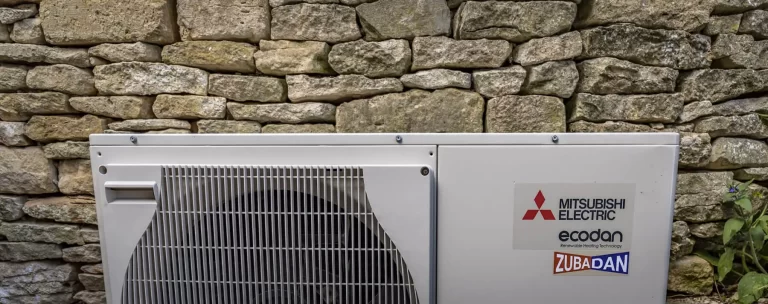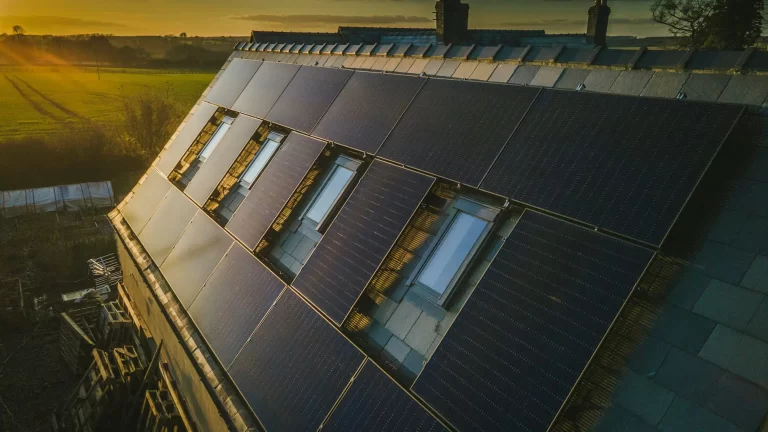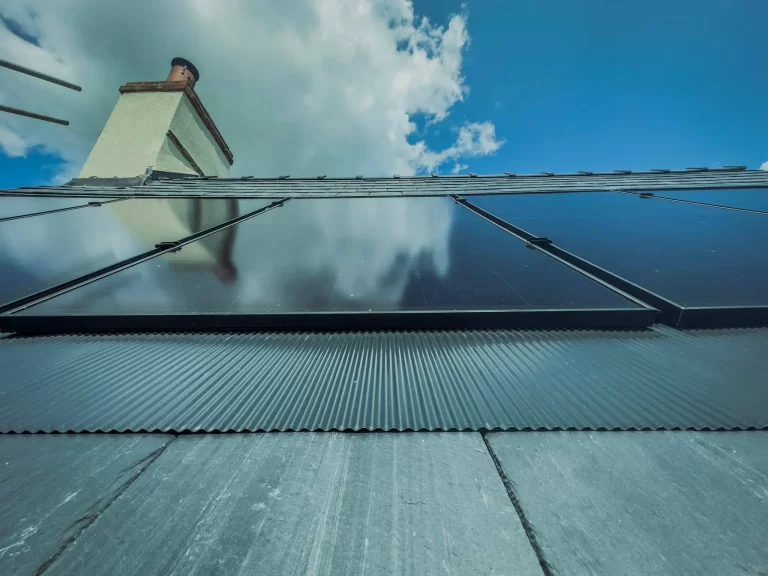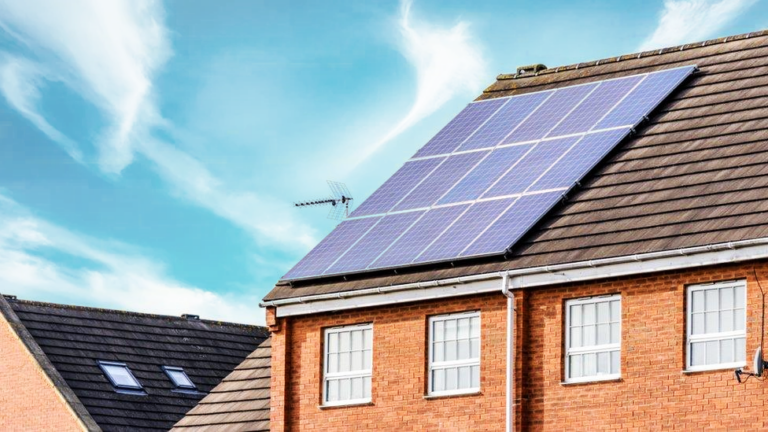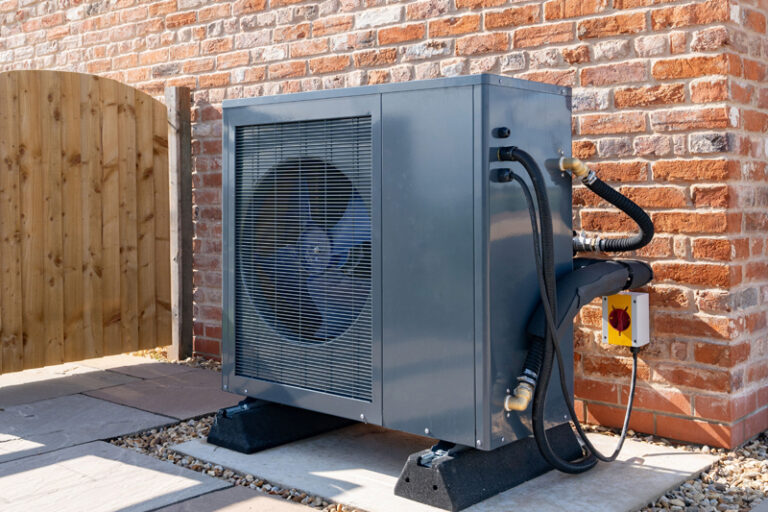As living costs continue to climb and inflation persists, many of us are seeking smart ways to reduce our monthly bills. One way to achieve this is by installing solar panels which not only help to cut energy costs in the long term but also offer significant environmental benefits.
The UK government offers various grants and schemes to help low-income homeowners and tenants of private and social housing enhance their homes’ energy efficiency with upgrades like solar panels. This makes green energy more attainable, especially for those who might struggle with the initial costs.
Installing solar panels can cost between £4,216 and £9,837—a significant investment. But, thankfully, there are financial aids such as grants, loans, and discounts available that can help you manage this. Throughout this blog, we’ll dive into these options, explaining who’s eligible and how to apply, so you can make the switch to solar and start saving sooner.
Types of Solar Panel Grants Available in the UK
Smart Export Guarantee (SEG): Introduced to encourage renewable energy production, the SEG obligates energy suppliers with more than 150,000 customers to pay for the electricity exported back to the grid from renewable sources, such as solar panels. This scheme not only helps offset the costs of installation but also allows property owners to earn a return on their investment.
Local Authority Grants and Initiatives: Various local councils across the UK offer grants or incentives for residents and local businesses to adopt solar energy. These grants are often part of broader initiatives aimed at increasing energy efficiency within the community.
Private Sector Initiatives: Some companies and non-governmental organisations offer grants or subsidies for solar installations as part of their commitment to environmental sustainability and corporate social responsibility.
Importance of Grants in Promoting Solar Energy
Reducing Installation Costs: Grants lower the initial barrier of solar panels’ cost, making it financially feasible for more homeowners and businesses to install solar systems.
Encouraging Energy-Efficient Upgrades: By providing financial support, grants encourage property owners to undertake energy-efficient home improvements, which might otherwise be considered too expensive.
Broadening Access: With the help of grants, solar power becomes a viable option for a wider range of the population, including those with limited disposable income or smaller household budgets. This inclusivity is essential for widespread adoption and the success of national energy efficiency targets.
What Grants are Available?
While the landscape of government support for solar panel installations has evolved with several past programs phasing out, there are still viable options available to assist UK households in adopting solar energy. Key among these are the Energy Company Obligation (ECO4), Local Authority (LA) programs and the Home Upgrade Grant (HUG).
Energy Company Obligation (ECO4)
Overview: The ECO scheme, now in its fourth phase (ECO4), began in 2022 and is set to continue until March 2026. This initiative is targeted at helping low-income households to make energy-efficient home improvements.
Benefits: Under ECO4, eligible households can receive grants to assist with the costs of installing solar panels. These grants are designed to reduce both the carbon footprint of homes and the energy bills of the residents.
Non-repayable Grants: It’s important to note that the grants provided under the ECO4 scheme are completely free and do not need to be repaid by homeowners at any point.
Local Authority Flexible Eligibility (LA Flex)
Overview: Part of ECO4. LA Flex is a key component of the Energy Company Obligation (ECO) scheme’s latest phase, emphasising local authority involvement.
Benefits: Local Autonomy. Gives councils the authority to set their own eligibility criteria for energy efficiency grants, ensuring tailored support.
Non-repayable Grants: Does not need to be repaid by homeowners at any point.
The Home Upgrade Grant (HUG)
Overview: The Home Upgrade Grant offers funding through local authorities in England to help households improve energy efficiency and install low carbon heating.
Benefits: Help for households that reside in a designated local authority area, have a low income (less than £36,000 annual income), are not connected to the gas grid, and have an energy performance certificate (EPC) rating between D and G.
Non-repayable Grants: Does not need to be repaid by homeowners at any point.
Who Is Eligible for the ECO4 Grant?
The ECO4 grant is specifically designed to support households on lower incomes by providing financial assistance for energy-efficient home improvements, including the installation of solar panels. Understanding the eligibility criteria is crucial for households considering applying for this grant.
Eligibility Criteria
Qualifying Benefits: Eligibility for the ECO4 grant is primarily determined based on whether a household receives one or more of the following benefits:
Pension Credit: A benefit for pensioners to supplement their income.
Universal Credit: A payment to help with living costs for those who are on a low income or out of work.
Income-Based Jobseeker’s Allowance (JSA): Assistance for those who are unemployed and actively seeking work, but have low or no income.
Income-Related Employment and Support Allowance (ESA): Support for individuals with a disability or health condition that affects their ability to work.
Income Support: Extra money for individuals on low income who meet specific criteria.
Housing Benefit: Assistance with rent payments for those on low income.
Tax redits (Child Tax Credits and Working Tax Credit): These are payments from the government for those with children or working but on low income.
Application Process and Assessment
Assessment: To apply for the ECO4 grant, eligible households must undergo an assessment process, which typically includes verification of benefit receipt and an evaluation of the household’s energy needs.
Supporting Documentation: Applicants will need to provide evidence of their eligibility, such as benefit statements or official letters from benefit providers, as part of their application.
Additional Considerations
Priority for the Most Vulnerable: The scheme prioritises households that are considered vulnerable, such as those with elderly members, children, or individuals with disabilities, to ensure that the benefits of energy-efficient upgrades are directed where they are most needed.
Collaboration with Energy Suppliers: ECO4 often involves collaboration between homeowners, the government, and energy suppliers to facilitate the funding and installation process.

How to Apply for the ECO4 scheme
Applying for ECO4 is a straightforward process, and you have a couple of easy ways to get started. First, you can contact your energy provider, but ensure they are one of the obligated suppliers under this scheme.
Here’s a quick rundown of how to reach some of the obligated suppliers:
- British Gas, E.ON Energy, EDF Energy, Octopus Energy, OVO Energy, Scottish Power, Utilita Energy, and SO Energy (including ESB Energy) all offer online application portals.
- E (Gas and Electricity) can be reached via email at [email protected].
- Ecotricity can be contacted at [email protected].
- Outfox the Market can be emailed at [email protected] or called at 0800 103 2702.
- Shell Energy prefers email contacts at [email protected].
- The Utility Warehouse can be reached by phone at 0333 777 0777.
Alternatively, for more information, check out the Government’s UK website.
Once you apply, you’ll usually complete an online form to verify your eligibility. After submitting, you’ll receive an email with a unique reference number and a document. This will involve your consent to verify your benefits with the Department of Work and Pensions.
Within a week, you should expect contact to arrange a free, brief (10-15 minute) survey of your home’s energy efficiency. This survey is designed to be quick and non-intrusive.
After your application is approved, the process to install solar panels can begin, typically taking up to eight weeks.
Can You Apply for Solar Panel Grants if You Don’t Claim Benefits?
Even if you do not receive any of the qualifying benefits listed for the ECO4 scheme, you might still be eligible for a grant to support solar panel installations. Many local authorities in the UK operate flexible energy schemes designed to extend support to a broader range of households.
Local Authority Flexible Energy Schemes
Broader Eligibility: These schemes often have more flexible eligibility criteria, which can include factors like total household income, energy inefficiency of the home, or particular local environmental targets.
Objective: The aim is to ensure that the benefits of energy efficiency improvements, such as solar panel installations, are accessible to as many residents as possible, regardless of their benefit status.
How to Apply
Contact Your Local Council: To explore these opportunities, it’s advisable to contact your local council directly. They can provide detailed information about the specific criteria and application process for their flexible energy schemes.
Is Your Home Eligible for an ECO4 Grant?
In addition to personal financial eligibility, the physical characteristics of your home also play a crucial role in determining whether you can receive government grants for free solar panels. One key factor is the energy rating of your property, as indicated on your Energy Performance Certificate (EPC).
Energy Performance Certificate (EPC) Rating
What is an EPC?: An Energy Performance Certificate provides information about a property’s energy use and typical energy costs. It also gives recommendations on how to reduce energy use and save money.
Eligibility Based on EPC Rating: To qualify for solar panel grants, your property must have an EPC rating of D, E, F, or G. These ratings indicate that your home could benefit significantly from energy efficiency improvements, including the installation of solar panels.
Exclusion of Higher Ratings: Homes with higher energy efficiency ratings, specifically those rated A, B, or C, do not qualify for these grants. The rationale is that these properties are already highly energy efficient and would gain less from the incremental improvements provided by solar panel installation.
Why the Focus on Lower Ratings?
Targeted Impact: The focus on homes with lower EPC ratings ensures that the grants bring about substantial improvements in energy efficiency where it is most needed, providing both environmental benefits and financial savings to homeowners who would otherwise face higher energy costs.
Maximising Benefits: By prioritising homes with lower ratings, government grants for free solar panels aim to reduce energy consumption and carbon emissions more effectively across the community.
Who Is Eligible for the Home Upgrade Grant?
The Home Upgrade Grant provides a significant opportunity for homeowners and landlords, offering up to £10,000 to make energy improvements in homes within 45 selected local authorities across England. Understanding the eligibility criteria is crucial for households considering applying for this grant.
Eligibility Criteria
To qualify for the Home Upgrade Grant, you need to meet the following criteria:
Location: Own and reside in a property located in one of the designated 45 local authorities.
Heating System: Your home should not have a gas boiler as its heating system.
EPC Rating: Have a home with an Energy Performance Certificate (EPC) rating of D, E, F, or G.
Income Threshold: Typically, your household income should not exceed £36,000 annually, although some local authorities might have higher income thresholds. It’s a good idea to check with your local authority directly for precise information and guidance before applying.
Application Process and Assessment
Assessment: To apply for the Home Upgrade Grant, eligible households must undergo an assessment process, which typically includes verification of location, heating system, EPC rating, and household income.
Supporting Documentation: Applicants will need to provide evidence of their eligibility, such as property ownership documents, EPC rating certificate, and proof of income, as part of their application.
Additional Considerations
Focus on Non-Gas Boiler Homes: The scheme is designed to support homes that do not have gas boilers, encouraging the adoption of alternative, more energy-efficient heating solutions.
Collaboration with Local Authorities: The Home Upgrade Grant involves collaboration between homeowners, local authorities, and the government to facilitate the funding and installation process.
How to Apply for the Home Upgrade Grant
Applying for the Home Upgrade Grant is a straightforward process, and you have a couple of easy ways to get started. First, check if your local authority participates in the program by using your postcode to search.
Here’s a quick rundown of how to apply:
- Start by checking if your local authority participates in the program by using your postcode to search.
- Once you confirm that your area is covered, you can initiate the application process by contacting your local authority. You’ll find all the necessary contact details on the government’s website.
- Alternatively, for a quicker process, you can use the government’s online eligibility and application tool.
During the application, you’ll be asked several questions, such as whether you have a gas boiler, your country of residence, whether you own the property, confirmation of your property’s EPC rating, and details about your household income. These steps will help determine your eligibility for the grant.
Is Your Home Eligible for the Home Upgrade Grant?
In addition to personal financial eligibility, the physical characteristics of your home also play a crucial role in determining whether you can receive government grants for energy improvements.
Energy Performance Certificate (EPC) Rating
What is an EPC?: An Energy Performance Certificate provides information about a property’s energy use and typical energy costs. It also gives recommendations on how to reduce energy use and save money.
Eligibility Based on EPC Rating: To qualify for the Home Upgrade Grant, your property must have an EPC rating of D, E, F, or G. These ratings indicate that your home could benefit significantly from energy efficiency improvements, including the installation of solar panels and other upgrades.
Exclusion of Higher Ratings: Homes with higher energy efficiency ratings, specifically those rated A, B, or C, do not qualify for these grants. The rationale is that these properties are already highly energy efficient and would gain less from the incremental improvements provided by the grant.
Why the Focus on Lower Ratings?
Targeted Impact: The focus on homes with lower EPC ratings ensures that the grants bring about substantial improvements in energy efficiency where it is most needed, providing both environmental benefits and financial savings to homeowners who would otherwise face higher energy costs.
Maximising Benefits: By prioritising homes with lower ratings, government grants for energy improvements aim to reduce energy consumption and carbon emissions more effectively across the community.
Can You Apply for Solar Panel Grants if You Don’t Claim Benefits?
Even if you do not receive any of the qualifying benefits listed for the ECO4 scheme, you might still be eligible for a grant to support solar panel installations. Many local authorities in the UK operate flexible energy schemes designed to extend support to a broader range of households.
Local Authority Flexible Energy Schemes
Broader Eligibility: These schemes often have more flexible eligibility criteria, which can include factors like total household income, energy inefficiency of the home, or particular local environmental targets.
Objective: The aim is to ensure that the benefits of energy efficiency improvements, such as solar panel installations, are accessible to as many residents as possible, regardless of their benefit status.
How to Apply
Contact Your Local Council: To explore these opportunities, it’s advisable to contact your local council directly. They can provide detailed information about the specific criteria and application process for their flexible energy schemes.
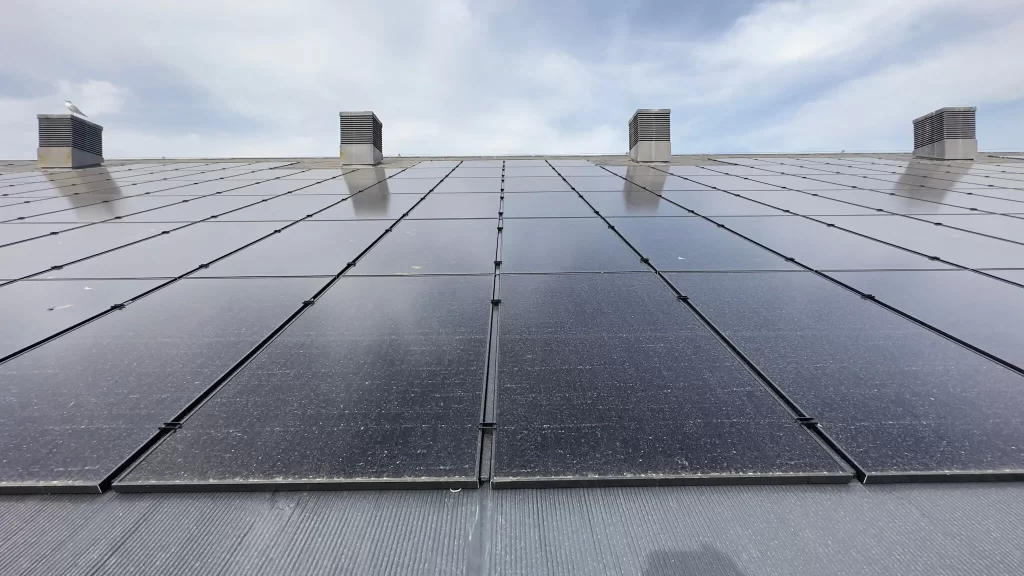
Maximising Savings with Solar Panel Grants
Leveraging solar panel grants effectively can significantly enhance the financial benefits of adopting solar energy. Here are some tips and strategies to ensure you maximise the savings from your solar panel installation.
Combining Grants with Other Incentives
Feed-in Tariffs (FITs): Although the FIT scheme has ended for new applicants, those who are already enrolled can continue to benefit. For new installations, look for similar incentives or newer schemes like the Smart Export Guarantee (SEG), which pays you for the excess electricity you export back to the grid.
Battery Storage Systems: Integrating a battery storage system with your solar panels can dramatically increase the efficiency of your setup. Batteries allow you to store solar energy generated during the day and use it during peak hours or when the sun is not shining, reducing your reliance on the grid and enhancing savings on energy bills.
Choosing the Right Solar Panel System and Installer
Making the most of your investment in solar technology starts with selecting the right system and installer. Here’s how you can ensure optimal efficiency and maximise long-term savings by partnering with a reputable company.
Assess Your Needs
Household Energy Usage: A reputable company will begin by evaluating your home’s energy consumption patterns, considering factors such as roof space, orientation towards the sun, and local weather conditions. This initial assessment by the supplier is critical in order to ensure they can accurately recommend the size and type of solar panel system that will best suit your needs.
Research and Compare
Panel Types and Brands: With so many different types and brands out there, it’s crucial to partner with suppliers you trust. They should not only walk you through the various options but also provide a detailed breakdown of their recommendations. This breakdown should highlight how each choice fits into your energy goals and budget, making the decision-making process much smoother.
Select a Reputable Installer
Choose Experience and Expertise: Choosing a certified and experienced installer ensures that every aspect of your solar installation is handled expertly, from the initial site assessment and system design to the installation and ongoing maintenance.
Comprehensive Service: Ensure that the installer offers a full range of services, including detailed site assessments, customised system design, professional installation, and robust after-sales support, this will ensure that your transition to solar power is seamless and stress-free.
What Are Solar Panels?
Solar panels are key components of a solar panel system that transform sunlight into usable electricity, providing a sustainable alternative to traditional energy sources. Below, we break down how these panels work, the different types available, and the benefits they offer.
How Solar Panels Work
Solar Conversion: Solar panels, or solar PV panels, consist of many photovoltaic cells. These cells convert sunlight into direct current (DC) electricity. An inverter then converts this DC into alternating current (AC), which powers homes and businesses.
Energy Collection: The efficiency of this process means that even on cloudy days, solar panels can gather energy, though the output is maximised under direct sunlight.
Types of Solar Panels
Monocrystalline Solar Panels: Made from a single, pure crystal of silicon, these panels are known for their high efficiency and sleek appearance. They perform better in low-light conditions compared to other types and are ideal for smaller roof spaces.
Polycrystalline Solar Panels: These are manufactured from multiple silicon crystals and are slightly less efficient but more cost-effective than monocrystalline panels, making them a popular choice for residential properties.
Thin-Film Solar Panels: Constructed by layering one or more films of photovoltaic material onto a substrate, these panels are the least efficient but offer the most flexibility in terms of application. They are lighter and can be used on surfaces where weight or shape might be a concern.
Benefits of Installing Solar Panels
Reduced Energy Bills: One of the most immediate benefits of installing a solar panel system is the significant reduction in energy bills. As you generate your own electricity, your dependence on the power grid decreases, leading to lower monthly costs.
Environmental Impact: Solar panels contribute significantly to reducing carbon emissions by providing clean, renewable energy sources. This shift not only supports global sustainability efforts but also enhances the environmental credentials of your property.
Increased Property Value: Research carried out by the WWF has shown that both residential and commercial properties can see an increase in value with the addition of solar panels. This is due to the growing demand for properties equipped with energy-efficient technologies.
So, Why Are Households Switching to Solar Panels?
The transition to solar energy is accelerating across the UK, driven by a combination of economic, environmental, and policy-related factors. Here’s why more households are opting to install solar panels:
Rising Energy Costs and Energy Independence
Control Over Energy Bills: With the increasing cost of electricity, solar panel installation offers households a way to mitigate these expenses significantly. By generating their own power, homeowners can enjoy more predictability in their energy costs, cushioning themselves against the volatility of traditional energy markets.
Energy Independence: Solar power reduces reliance on the national grid and fossil fuels, granting households a degree of independence that is both liberating and financially beneficial. This self-sufficiency is particularly appealing as energy prices continue to rise, and as outages or shortages become more common.
Environmental Concerns and Sustainable Living
Reducing Carbon Footprints: Many people are driven by the desire to live more sustainably. Installing solar panels is a practical step that significantly cuts down on greenhouse gas emissions associated with home energy use.
Support for Renewable Energy: By adopting solar power, households contribute to a larger shift towards renewable energy sources and reduce carbon emissions which is crucial for combating climate change and protecting natural resources.
Government Incentives and Financial Benefits
Grants and Subsidies: The UK government offers various incentives that make solar panel installation more accessible and affordable. These financial supports aim to encourage energy efficiency improvements by reducing the initial investment required, thereby aligning with national targets for energy conservation.
Return on Investment: Solar energy not only helps in saving on energy bills but can also increase household income through mechanisms like feed-in tariffs or smart export guarantee schemes, where homeowners can sell back excess electricity to the grid.
Conclusion
As we’ve explored throughout this guide, solar panel grants are a pivotal element in the UK’s strategy to promote renewable energy adoption and mitigate carbon emissions. These grants not only make solar panel installations more accessible but also significantly reduce the initial financial barriers, allowing a wider range of households and businesses to contribute to a greener future.
Embrace the shift to solar—reduce your carbon footprint, support the use of renewable energy sources, and enjoy the financial rewards that solar technology brings. The time to act is now. Harness the power of the sun and become a part of the UK’s sustainable energy solution.



